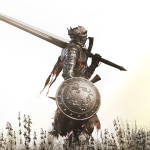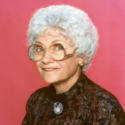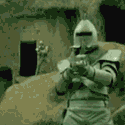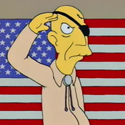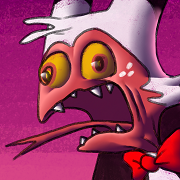|
I really want to read about how they set up / filmed that plane scene.
|
|
|
|

|
| # ? Apr 25, 2024 20:04 |
|
Class Warcraft posted:Then Scofield tries to reason with a German sentry to avoid killing him, but ends up having to kill the guy anyway. What's the guy going to do, let the enemy infiltrator keep sneaking in the encampment? What the German soldier did is what most any soldier would do in that situation - sound the alarm. It's Schofield who's trying to do something unreasonable, you can't explain that you're on a mission of peace and just talk your way through enemy lines. Class Warcraft posted:Even Sherlock seems shocked that the Germans would retreat miles just to turn around and lay a trap. He's shocked because he was stupid enough to fall for it and send all his men to the slaughter; he hosed up and he's realizing it and that what he's wrestling with; not incredulity that the Germans would sink that low. Class Warcraft posted:The entire movie is the Germans surprising the British over and over again with their ruthlessness. It portrays the British as honorable and fighting fairly while the Germans are literally the skulking Huns from the WW1 propaganda posters. Of the two main characters, one of them knows what the war is really like, and he doesn't seem to think his side is that great, we should believe him when he says repeatedly that the ribbons are worthless; hell, they're worse than that, they're an insult to the families given them in exchange for their lost sons. Class Warcraft posted:This movie does not portrays both sides as equal victims of events beyond their control. Blake and Scofield go out of their way to avoid killing whenever possible, while literally every single German soldier we see is hellbent on killing the enemy, even if it means losing his own life in the process. I do think it's significant that Schofield tries to avoid killing right after his scene with the woman. He's carrying that interaction forward, the German soldier isn't. Jack B Nimble fucked around with this message at 05:15 on Jan 15, 2020 |
|
|
|
Jack B Nimble posted:What's the guy going to do, let the enemy infiltrator keep sneaking in the encampment? What the German soldier did is what most any soldier would do in that situation - sound the alarm. It's Schofield who's trying to do something unreasonable, you can't explain that you're on a mission of peace and just talk your way through enemy lines. Uh most soldiers would surrender when surprised by the enemy and in a situation where they'll almost certainly die instantly by fighting back. Both Germans we see up-close fight to the death rather than accept surrender, even though in both circumstances the British soldiers are not showing any intention to harm them. In the pilot's case they were rendering him aid and he decided to stab Blake to death anyway. In fact, throughout the entire movie, we never see Blake or Scofield initiate hostility with any of the Germans they meet. Every single time the Germans attack first. quote:He's shocked because he was stupid enough to fall for it and send all his men to the slaughter; he hosed up and he's realizing it and that what he's wrestling with; not incredulity that the Germans would sink that low. Except literally nobody believes this could possibly be the German plan until the recon pics arrive because its so beyond their comprehension that anyone would willingly give up miles of land in order to set a trap. quote:Of the two main characters, one of them knows what the war is really like, and he doesn't seem to think his side is that great, we should believe him when he says repeatedly that the ribbons are worthless; hell, they're worse than that, they're an insult to the families given them in exchange for their lost sons. Being anti-war is not the same as not having honor. This is a trope that gets used over and over again in war movies. The most heroic character is almost always the most disillusioned as well. quote:I do think it's significant that Schofield tries to avoid killing right after his scene with the woman. He's carrying that interaction forward, the German soldier isn't. This is the crucial scene that seals the Germans as nothing more than 2D antagonists, in my opinion. A young German soldier stumbles into an enemy in the dark, and rather than fight it out they mutually decide not to fight and go their separate ways - now THAT would show the Germans as just as afraid of the war and their circumstances as Scofield is. Instead, the German soldier immediately goes for his knife even though it means all but certain death. The blind-drunk German who is oblivious to his friend getting killed yards away is actually the most sympathetic German we see in the whole movie. I think y'all are trying to make the normal WW1 theme of both sides having a shared traumatic bond by being forced into the sad circumstances of war fit this movie, when it explicitly subverts that expectation at every turn. Like, did literally anyone see the pilot stabbing Blake coming? Everyone in my theater gasped. We all expected to have a moment of shared reflection on the horrors of war, not the German going all banzai instead.
|
|
|
|
Class Warcraft posted:Blake and Scofield go out of their way to avoid killing whenever possible Literally the first thing Schofield says after they pull the pilot out of the aircraft is "Let's put him out of his misery"
|
|
|
|
Think thatís more out of mercy than violence.
|
|
|
|
Acebuckeye13 posted:Literally the first thing Schofield says after they pull the pilot out of the aircraft is "Let's put him out of his misery" Scofield, drunk with rage at the sight of a German, bloodthirstily tears the pilot from his burning plane, intent that the flames shall not steal his next victim. Definitely what was happening in that scene.
|
|
|
|
I dunno, I can see the points you're making but I still think it's theme you're imposing on the events rather than one that occurs naturally. I mean, I could say: The German pilot would never had been on the ground at all if the British planes hadn't unfairly ("two on one") attacked him. Schofield didn't have to go into the house to make sure the sniper was dead. Why didn't Schofield just run away from the startled soldier once he had the upper hand instead of strangling him to death. The answer to all of these is that nothing these soldiers do is out of character, it's all a beleivable participation in a shared tragedy. Also, I really don't think surrending to a man sneaking up on you in the dark is so obviously reasonable that there would have to be something wrong with you to do anything else. You might instead yell something like "Gunther, look out!" Or "Help me!".
|
|
|
|
I'm not sure what the theme is yet, I'm still processing it. I'm just pretty sure it's not this: GoGoGadgetChris posted:SPR is a movie about Good Soldiers vs Bad Soldiers, but 1917 is about Innocent Men vs the Horrors of War which is what I've been providing counterarguments against. The Germans in 1917 are not portrayed in any more sympathetic light than the Germans we see in SPR. We never see them in any context except from their role in causing destruction and violence. The movie subverts our expectations by not toeing the line of our collective agreement on who is at fault in WW1: the generals and politicians, while the reluctant masses on both sides suffer the consequences. When they rescue the pilot we expect it to be a moment of shared humanity, instead it turns into a brutal murder. Same thing with the sentry, once again the movie teases us that here, face-to-face with the enemy, we will have more in common than not. Then it immediately devolves into hand-to-hand combat.
|
|
|
|
You're right, it is an interesting point that the soldiers are pushed towards inevitable violence, you've done a good job highlighting how that's repeated throughout the film. I'm still not sure about the portrayal of the Germans, but you've made a good argument and I don't have anything further to offer without repeating myself, so I'll leave it alone for now and take your own advice on processing the film some more.
|
|
|
|
One of the best movies I've ever seen. Also, the Japanese ministry of culture deserves an award. The Sakura themes in the movie are everywhere.
|
|
|
|
It's interesting that there are hardly any German soldiers at all in the movie. In the the first act the enemy is the fear of the soldiers who are not there at all. The only true danger comes from a faceless bomb left behind. Then the pilot is the first enemy we actually see but we barely get a look at him before he quickly stabs Blake off screen and is then removed from the story. His only purpose is to make this mission personal for Schofield. After that we have the sniper who is only seen briefly by muzzle flash after he was already mortally wounded, the faceless soldiers in the dark, and the two in the building. The drunk is out of focus in the background. The one that Schofield kills is seen the most out of any other German but even their fight to the death is shot mostly in darkness. And thatís it. The whole finale of the movie we see no German soldiers. Only a few explosions from their weapons. The final battle is the British soldiers vs a faceless enemy.
|
|
|
|
GoGoGadgetChris posted:I was a bit annoyed at the "inconsistent" theme of trees at first (Tommen mentions that the chopped-down cherry trees will spring back, better than ever, once the stumps rot) which was at odds with the general themes of rot and decay in the film. The metaphor is that it takes a long time for a tree to grow, like people. Beautiful ones can be cut down en masse even in their safe home and they can be made into tools and used as obstacles. And sometimes all you can do is lean against your fellow man, or tree, and try to recover. Re: The Germans - The point is that war is hell. Your enemy instantly becomes a faceless ghoul.
|
|
|
|
Zero One posted:It's interesting that there are hardly any German soldiers at all in the movie. Also realizing now that the Drunk German scene is also video gamey as gently caress.
|
|
|
|
Timeless Appeal posted:video gamey as gently caress. What does this mean?
|
|
|
|
GoGoGadgetChris posted:What does this mean?
|
|
|
|
Plus I think the camera following the main guys over their shoulder much of the time, like a 3rd person action game adds to it. I definitely see where people are getting that from although it didnít bother me at all.
|
|
|
|
Sam Mendes specifically quoted 3rd person video games as inspiration for the camera style
|
|
|
|
Bottom Liner posted:Sam Mendes specifically quoted 3rd person video games as inspiration for the camera style Oh definitely, there's... more than one occasion in the movie where the camera is following the main character in 3rd person It just seemed like a criticism or a complaint, and I couldn't tell from the context what the problem was. Like it breaks immersion when you think "this reminds me of Resident Evil 2"? It definitely pulls me out of any TV or Movie when I see a dolly zoom so I would understand that for sure.
|
|
|
|
I see this movie as the opposite of Dunkirk in a lot of ways. Dunkirk excelled at showing the faceless masses of war and felt really impersonal with the soldiers compared to the civilians, but this is the other end of the spectrum showing the full war experience but over a very short time frame and through the experience of just two soldiers with everything being personal. I think they're a great companion to one another because they both achieve the same thing in the end with showing big picture horrors of war but in opposite indirect ways.
|
|
|
|
Anything action-y thatís shot in an experiential or subjective way is going to feel like a video game, I think. The movie is really leaning on the mechanics of the space and the immediacy of these physical threats to the character to create drama, and thatís also what video games do. I donít understand that as a criticism, though. I felt very immersed in his experience, video game-y or not. Itíd be a failure if I wasnít in it with him.
|
|
|
|
Xealot posted:
Yeah I hope I wasn't projecting there, maybe it wasn't a criticism. I just got used to "it's like video games!!" as a complaint from reading the Mandalorian reviews.
|
|
|
|
Really dumb series of trivial and pointless questions that nonetheless I was trying to reason out... When the bell is ringing to signify that it's 6 o'clock, wouldn't that have been the church bell? And wasn't it the church that was ablaze? And assuming it's a different bell, I don't think bells were automated back then, so are we thinking that someone (a resident? a German soldier?) is manually ringing the bell amidst the chaos of what is essentially a battlefield?
|
|
|
Sand Monster posted:Really dumb series of trivial and pointless questions that nonetheless I was trying to reason out... I didn't notice this but now I want to know. Class Warcraft posted:I'm not sure what the theme is yet, I'm still processing it. I'm just pretty sure it's not this: I know this is getting a little old but I just read the discussion you and others have been having over this and I think the truth is that while you are right and the Germans are not portrayed sympathetically I think you're confusing them as the antagonists where the real antagonist is the war. The whole point of the movie, I think, is that entire situation is senseless and insane and to look for a meaning in the meaninglessness of WWI is pointless.
|
|
|
|
|
Europe has had striking clocks since the high middle ages. I know in Italy there was a trend towards mechanical ringers during the end of the long 19th Century. Italy is usually behind the technological curve, so it would probably have happened in Northern Europe too. That said, I could totally see a member of the regular clergy just going about their day as a way of dealing with the horrors of war. There is nothing about "bellorum" in "ora et labora", so keep doing what you are doing. What's happening in the outside world isn't supposed to concern you.
|
|
|
|
GoGoGadgetChris posted:Yeah I hope I wasn't projecting there, maybe it wasn't a criticism. I just got used to "it's like video games!!" as a complaint from reading the Mandalorian reviews. I didn't connect with the film despite being impressed by it. I understand that Mendes was influenced by games, but I do feel like it led to my disconnect in the same way that stuff like They Might Be Giants or Doubt always feels off to me because you can feel its roots from the stage. I think the moment with the drunk German would work for me in a Rockstar game, but I don't necessarily think you can carry the language of a video game into film, and it distanced me from the film rather than connecting me.
|
|
|
|
Timeless Appeal posted:I'm not trying to be disparaging or use "video game-y" as an insult. That definitely sounds like a (valid) criticism to me, TBH.
|
|
|
|
Bottom Liner posted:I see this movie as the opposite of Dunkirk in a lot of ways. Dunkirk excelled at showing the faceless masses of war and felt really impersonal with the soldiers compared to the civilians, but this is the other end of the spectrum showing the full war experience but over a very short time frame and through the experience of just two soldiers with everything being personal. I think they're a great companion to one another because they both achieve the same thing in the end with showing big picture horrors of war but in opposite indirect ways. I enjoyed the film immensely, but the plot is essentially a fairy tale, isn't it?
|
|
|
|
fenix down posted:Another opposite is that Dunkirk seeks to eradicate the notion of "heroes" whereas 1917 seeks to reinforce it. That's an... interesting read on the guy who traded his medal for wine and talked about how stupid everything about the war & their mission was (and who ultimately failed at his mission). My takeaway was the exact opposite - Heroes are doomed in 1917. Tommen is the one who works hard to get that bit of metal pinned to his uniform, and boy does he get it. Scofield did give that lady and the baby some food though, which was kind. He could be considered that lady's hero. fenix down posted:but the plot is essentially a fairy tale, isn't it? It's fictional, if that's what you mean? If not, I'd love to hear more. Fairy tales to me are a mix of childish, happy, idealized, and/or have a moral, which are all absent concepts from this film.
|
|
|
|
fenix down posted:Another opposite is that Dunkirk seeks to eradicate the notion of "heroes" whereas 1917 seeks to reinforce it. I didn't see it as reinforcing the notion of "heroes" because any sense of victory is undercut immediately by the cynical reality of the war. Schofield goes through metaphorical Hell to deliver his message, and not only is he too late to save the first wave, Dr. Strange rightly calls out the futility of it all; "We stand down today, then attack at dawn tomorrow." There's no sense of accomplishment or victory in the end, merely one of loss and entrapment. As others have pointed out, "the hero" basically ends where he started, leaning against a tree and waiting for his next order...the primary difference being that his friend is now dead along with thousands more. I definitely see the "fairy tale" aspect, though. There was a deeply surreal and at times magical realist sense as the movie went on, with Schofield constantly running blind through danger and somehow coming out alive on the other end. It wasn't a tactical realist story, for sure, which made it more similar in my mind to the kind of surreal horror in Apocalypse Now, or more recently Sicario.
|
|
|
|
Xealot posted:I didn't see it as reinforcing the notion of "heroes" because any sense of victory is undercut immediately by the cynical reality of the war. Schofield goes through metaphorical Hell to deliver his message, and not only is he too late to save the first wave, Dr. Strange rightly calls out the futility of it all; "We stand down today, then attack at dawn tomorrow." There's no sense of accomplishment or victory in the end, merely one of loss and entrapment. As others have pointed out, "the hero" basically ends where he started, leaning against a tree and waiting for his next order...the primary difference being that his friend is now dead along with thousands more. I was so sure Schofield was going to use those grenades they got as part of their mission kit, instead of entering the room with the sniper. The solution to room clearing is always grenades! I did like how he's not some Łbermensch though - every time he got into a 1v1 fight, it was a coin toss whether he'd come out alive.
|
|
|
|
Bottom Liner posted:Sam Mendes specifically quoted 3rd person video games as inspiration for the camera style i can see it and honestly i didnt hate it. it made it feel more, idk real to me.
|
|
|
|
Xealot posted:It wasn't a tactical realist story, for sure, which made it more similar in my mind to the kind of surreal horror in Apocalypse Now, or more recently Sicario. I will say that in war, much more insane things have happened, and nothing in particular really stood out to me as being profoundly unrealistic (Maybe other than the general not sending multiple teams of runners)
|
|
|
|
Acebuckeye13 posted:I will say that in war, much more insane things have happened, and nothing in particular really stood out to me as being profoundly unrealistic (Maybe other than the general not sending multiple teams of runners) I was expecting him to get there and another runner to have beaten him to it. Of course they are going to tell all the runners they are the only ones. I don't think we are quite at the point of Iraq/Afghanistan for him to have arrived after it all went down. Losing the first wave and ultimate futility works. But having another runner beat it would have been a nice cherry on top.
|
|
|
|
Mullitt posted:Saving Private Ryan was notable for being a particularly gruesome and unglamorous depiction of war, I have no idea what you're even getting at here. Bascially everything in 1917 was taken from that movie. Saving Private Ryan is "gritty" propaganda, which covers demographics that think they're too smart to fall for "obvious" propaganda.
|
|
|
|
GoGoGadgetChris posted:Tommen is the one who works hard to get that bit of metal pinned to his uniform, and boy does he get it.  But yeah, each individual character in Dunkirk survives a lot less than Schofield does, and there are a lot more of them to fall by the wayside. Like was said, maybe not heroic, but fantastic? Doesn't really make me like the film less, but it's an interesting comparison. Jack B Nimble fucked around with this message at 14:37 on Jan 18, 2020 |
|
|
|
Prince Myshkin posted:Saving Private Ryan is "gritty" propaganda, which covers demographics that think they're too smart to fall for "obvious" propaganda. I don't know if you thought I was disagreeing with that idea, because of course both of these movies are military service worship. However, I found 1917 to be far more black and white in regards to its morality, and the "war is hell" imagery is essentially the same.
|
|
|
|
The last thing I had in mind after watching Saving Private Ryan was "I want to fight in a war!"
|
|
|
|
Just saw the movie. Cried tears, liked it a lot. Some thoughts: Thematically the movie is clearly about the dichotomy between cynicism and hope in the face of war. The basic structure is that our hero (Schofield) starts cynical, is presented with lots of reasons to not be hopeful and yet ends with a renewed sense of hope. So the question of the movie is why. People talked about the pilot they rescued that stabs Blake. I was definitely thinking with that scene about what the film was saying about the Germans. But I think the distinction between this and say Saving Private Ryan is that it is not dwelt on. Blake or Schofield do not regret their actions, Schofield shoots the pilot but it's in the immediate act of warfare, not later an act of revenge like in SPR. We are shown the photograph of the family of the German soldier in the barracks, which we are reminded of when the soldiers in the truck speak disparagingly of Germans. We hear later that the Germans killing the cows is tactically reasonable to deny the advancing British troops food. So no, I don't think the film really thinks the Germans are evil, it thinks the war makes it very difficult to be good. I think the film is hopeful, ultimately, because the bad things that happen in it are sudden and without warning, while the long predicted bad things do not turn out. The enemy trench turns out to be unoccupied. There is nothing bad about the abandoned house Schofield had a bad feeling about. The hint from that one officer that Mackenzie might order the attack regardless, that he should only be concerned with having witnesses so that Mackenzie might be court marshalled after the entire battalion is killed, does not turn out. Blake's brother is unhurt. The bad poo poo that happens, the barbed wire, the booby trap, the stabbing and the plane crash, the sniper on the bridge, all of that just happens. In contrast, it is the good things that build up over the culmination of events. I legitimately cried at the scene where Schofield gives the milk to the baby, because I realised that it was an act of fundamental decency that was the sum of so many other decencies. Blake rescuing Schofield, leading to the empty canteen. Schofield deciding not to go back. Some random German deciding to leave the cow and the milk behind instead of destroying it like all the others. What the film is saying, at least what it said to me, is that war is poo poo, acts of good are not encouraged, but it adds up, it all adds up. Mackenzie may claim cynically at the end that Schofield achieved nothing, that the war will go on until it's the last man standing. But the film ends with Schofield looking at his family's photos, believing that he will go home again, that the war will end. And in the afterword, we are told he's right. We are told of Sam Mendes's father. And he made it home.
|
|
|
|
There's that early scene where we go through the orchard and Schofield is dismayed at all the trees that have been cut down. Schofield signs, "they are all goners, I guess". But Blake corrects him. The seeds from the cut down trees will become new ones. "There will be more trees than there were before." I think that's this film in a nutshell.
|
|
|
|

|
| # ? Apr 25, 2024 20:04 |
|
Really good movie, definitely see it on the biggest screen you can because Deakins is at the top of his game here, visually it's utterly spectacular. If it's on Imax or other big-screen formats near you spend the extra money to see it on that, I'm really glad I sprung for it. (And I'm also glad that the theaters bar was open at 11am, it was a brutally cold and snowy day here so I got to drink an irish coffee while watching it which was really nice.) I liked the whole one-long-extended-shot thing the movie did, it's a technical marvel that it worked so well, it was very much seamless - I didn't notice any spots where it was glaringly obvious they stitched it together. (apart from where he gets a pistol round to the helmet and it goes black for a bit. Also there were pretty obvious sparks from the round hitting the helmet but I can sees how they could be missed if you didn't see the movie on a huge screen.) What I found funny was the no-cut thing gave me appreciation going both ways: I came home and Django Unchained was playing so I had that on while I made some lunch and after seeing 1917 I really appreciated having some concrete cuts to break up the scenery. Jack B Nimble posted:
Oh yes absolutely, Dunkirk is telling the story of a real event and while it's got a few inaccuracies it's still very much a realistic movie and the movie strives to honor the memories of that by getting the details right. Dunkirk's characters were written to react to the (mostly) accurate version of events. 1917 on the other hand is more of a character-driven film, while none of the events portrayed are unrealistic, the plot is driven by the characters rather than having the characters react to historically accurate events. It's a movie about an epic journey during wartime... I don't know if I'd call it an adventure film (although it does have some of those elements) but it's definitely a movie that centers on the main characters more than the war going on around them Tumble fucked around with this message at 22:14 on Jan 18, 2020 |
|
|








